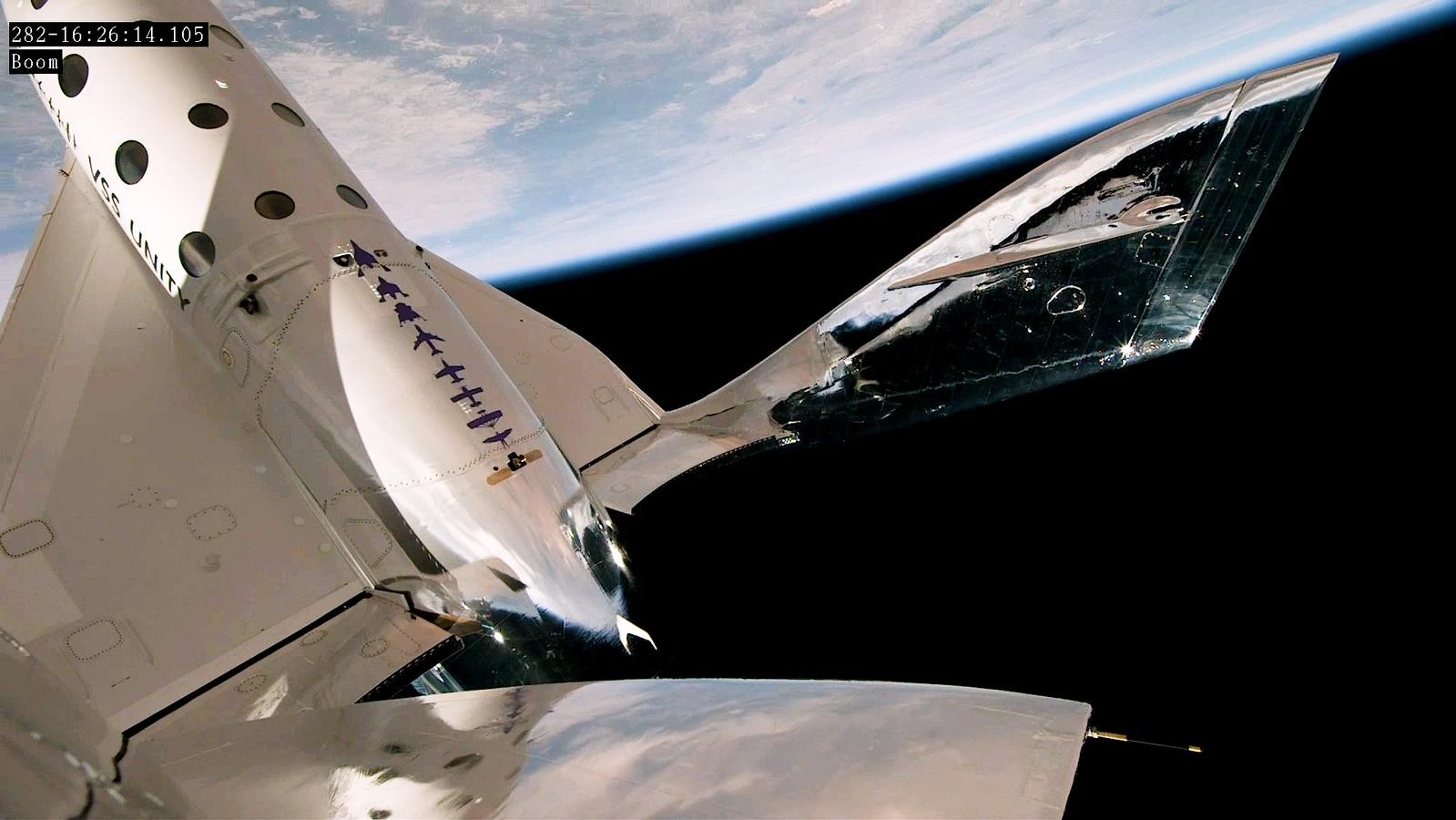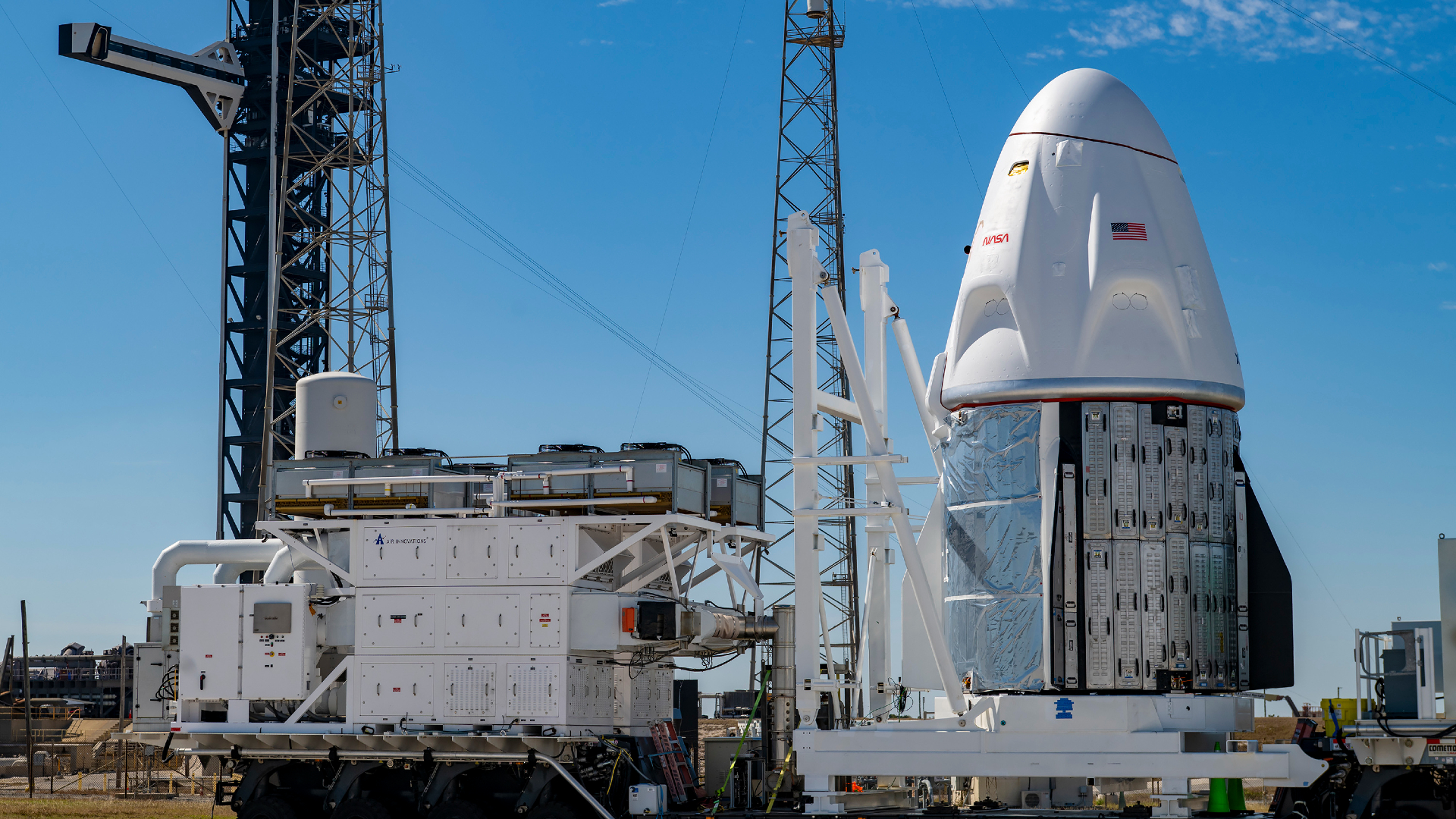Virgin Galactic to launch its 1st commercial spaceflight on June 29
Virgin Galactic's space plane last flew in July 2021.

Breaking space news, the latest updates on rocket launches, skywatching events and more!
You are now subscribed
Your newsletter sign-up was successful
Want to add more newsletters?

Delivered daily
Daily Newsletter
Breaking space news, the latest updates on rocket launches, skywatching events and more!

Once a month
Watch This Space
Sign up to our monthly entertainment newsletter to keep up with all our coverage of the latest sci-fi and space movies, tv shows, games and books.

Once a week
Night Sky This Week
Discover this week's must-see night sky events, moon phases, and stunning astrophotos. Sign up for our skywatching newsletter and explore the universe with us!

Twice a month
Strange New Words
Space.com's Sci-Fi Reader's Club. Read a sci-fi short story every month and join a virtual community of fellow science fiction fans!
Virgin Galactic has set a launch date for its first commercial spaceflight.
The company, a part of billionaire Richard Branson's Virgin Group, announced Monday (June 26) that it will send three Italians and a Virgin Galactic flight instructor to space no earlier than Thursday (June 29), two days later than a previous estimate.
A livestream of the flight will run here at Space.com, through Virgin Galactic, if possible. Events will begin at 11 a.m. EDT (1600 GMT, or 9 a.m. local time in New Mexico) on June 29. The mission will launch from New Mexico's Spaceport America, where Virgin Galactic hosts a commercial hub.
Virgin Galactic's spaceflight system will also include four pilots on its two vehicles: Two pilots aboard the carrier plane VMS Eve that will fly high in Earth's atmosphere, and two pilots aboard the SpaceShipTwo space plane VSS Unity that will go to suborbital space with the four passengers.
Photos: Virgin Galactic's 1st fully crewed spaceflight with billionaire Richard Branson
The passengers include:
- Pantaleone Carlucci, an engineer at the National Research Council of Italy;
- Colin Bennett, an astronaut instructor at Virgin Galactic;
- Col. Walter Villadei of the Italian Air Force, who is training for a "future orbital space mission" to the International Space Station, according to Virgin Galactic materials;
- Lt. Col. Angelo Landolfi, a physician with the Italian Air Force.
The pilots of VMS Eve include:
Breaking space news, the latest updates on rocket launches, skywatching events and more!
- Kelly Latimer, commander
- Jameel Janjua, pilot
The pilots of VSS Unity include:
- Mike Masucci
- Nicola Pecile
The mission, called Galactic 01, is in support of a joint Italian Air Force and National Research Council (of Italy) research effort called "Virtute 1."
The 90-minute flight will see the cabin of VSS Unity "transformed into a suborbital science lab to provide the environment for rack mounted payloads and for the crew to interact with wearable payloads," according to Virgin Galactic materials.
The science will include 13 experiments (a mix of autonomous and guided ones) that will study fluid dynamics and sustainable materials for medical applications.
A typical flight profile sees Eve leaving the runway with Unity under its wings. At 50,000 feet (15,000 meters), Eve drops Unity to fly on its own. Unity subsequently ignites its rocket motor to fly to suborbital space. The four crew members aboard Unity will then have a few minutes of weightlessness during which they will see Earth's curvature against the blackness of space before gliding back to Earth.
Unity has a maximum capacity of six passengers. It has already flown five times to suborbital space, most recently on May 25. Prior to that jaunt, it had last flown in July 2021 before Virgin Galactic grounded Unity and Eve for maintenance and upgrade work meant to allow the vehicles to fly more often for commercial service.
Should Galactic 01 go to plan, Unity and Eve will fly again relatively quickly: The second flight, called Galactic 02, is "planned for early August, with monthly commercial flights thereafter," according to a previous Virgin Galactic announcement last week.
Joining a mission will require a lot of money, as a ticket aboard VSS Unity costs $450,000. No earlier than 2026, Virgin Galactic will launch a set of new "Delta-class" space planes capable of flying to space once a week.
The company is competing against Blue Origin, the spaceflight company of Amazon founder Jeff Bezos. Blue Origin's New Shepard vehicle hasn't launched since September 2022, when it suffered an anomaly during an uncrewed research flight.

Elizabeth Howell (she/her), Ph.D., was a staff writer in the spaceflight channel between 2022 and 2024 specializing in Canadian space news. She was contributing writer for Space.com for 10 years from 2012 to 2024. Elizabeth's reporting includes multiple exclusives with the White House, leading world coverage about a lost-and-found space tomato on the International Space Station, witnessing five human spaceflight launches on two continents, flying parabolic, working inside a spacesuit, and participating in a simulated Mars mission. Her latest book, "Why Am I Taller?" (ECW Press, 2022) is co-written with astronaut Dave Williams.
